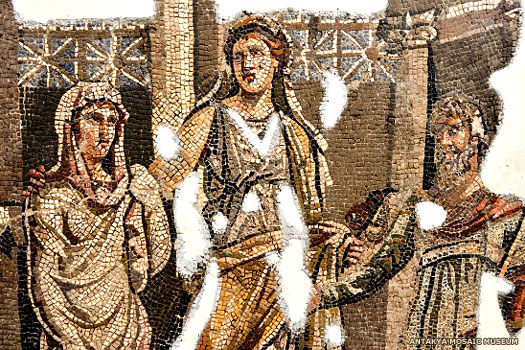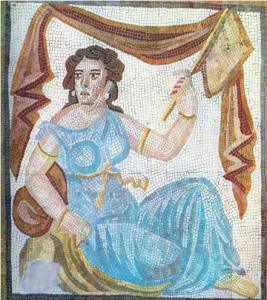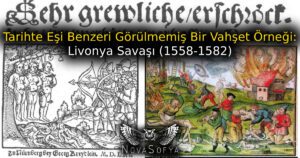History of Gavat and Mazdakian Philosophy: Deliberately Makes His Wife Have Sex with Others

Etymology has a great place in the historical process. As an example of this, we will tell the history of the word through a word. Our word is “Gavat” in Turkish, which means “a person who deliberately makes his wife have sex with others.”
Today, when we hear the word “gavat”, we think of a very bad and insulting concept. However, when we examine the origin of the word “gavat”, we encounter a much more surprising historical event underneath.
So much so that “gavat” appears as the name of a person rather than a concept. “Gavat” was used in the 5th or 6th century during the Sassanid period. The Shah (Qubâd), who reigned in the twentieth century, came from Kavâd. So what did this ruler do to deserve the word “gavat” and this word has been treated as an insult in our language for centuries. Let’s take a look at it together!
To understand “gavat” we will have to talk about the Mazdek movement. The Mazdek movement, called the Mazdekiyye and Mazdek religion in Turkish, took its name from the Iranian reformist Mezdek b. Bâmdâd, who lived during the reign of Qubâd (Kavâd) in Sassanid period Iran (488-496, 498-531) and advocated a kind of communal social structure. It is also known that they are called “derist-dênân” (members of the true religion).

The Mazdeks were a very different community in terms of their religious beliefs and lifestyles compared to the societies of their time. It is said that sectarianism is first and foremost a religious movement and that it takes its source from Manichaeism, and that it is described as such in Greek sources.
So what were the teachings of the Mazdeks, who were identified with “gavat”?
The most important of the views that the sources refer to Mezdek is to eliminate the causes of jealousy and discord between people and to introduce the right of common use in property and women. Mezdek argued that the most important reason for people’s unhappiness is hatred and discord and that these are caused by their own inequalities. According to him, human beings are equal in creation, so it is necessary to put an end to the existing inequality.
For this reason, it is not right for one person to own more property or women than another. According to Mezdek, one should make use of material things in a peaceful social and economic order with equanimity and in an egalitarian manner.

Mezdek states that God gives food to be consumed equally, but people do not behave in this way, so it is necessary to take from the rich and give to the poor; He preaches the division of goods and women in order to defeat the demons of desire, anger, revenge, need, and greed.
According to the Pseudo-Josuele Stylite, Zerâdüştekân said that any man could have intercourse with any woman he wanted, and Kubâd (Kavâd) allowed the wives of nobles to commit adultery. According to Otakar Klima and İhsan Yârşâtır, Mezdekiyye is in favor of monogamy and the breaking of the rules that prevent the marriage of nobles and non-nobles. In Iran, which was experiencing a population crisis due to hunger and wars, Kubâd allowed noble women to marry others.
According to Mezdekiyya’s understanding of cosmogony, there were initially three elements: fire, water and earth; These constituted the two cosmic forces that governed good and evil. Of these, the god of light rules the world by four forces: appeal, understanding, memory, and pleasure, which have seven assistants who are inferior to them.
This religious movement spread by Mezdek had a great impact on political life, especially due to the conditions in the country during the Kubâd (Kavâd) period. At the end of the V century, Iran was in a very bad state both politically and socially. During the Fîrûz period, the country suffered a famine and famine disaster that lasted for seven years, and after the heavy defeat in the east against the Ephthalites (Heyâtıle-Akhuns) in 484, the Sassanids had to pay taxes, and the economic disorder along with the political instability increased the number of those who were dissatisfied with the situation, which prepared a suitable environment for the social doctrines of Mezdek, and as a result, Kubâd (Kavâd) accepted Mezdekism.
Historians regard Mezdek as a militant social reformer and Qubâd as a skillful politician who wanted to use this movement to his advantage. It is also stated that the necessity of breaking the influence of the nobility and the high priestly class and restoring the balances led Kubâd to take advantage of a religious movement aimed at abolishing the privileges of these classes for its own interests. Both religious and political reasons probably played a role in Kubad’s participation in Mezdakiism.
With Kubâd’s acceptance of Mezdakiism, the redivision of property and the partnership practices regarding women led to confusion, riots and looting began, and Kubâd was dismissed and arrested by the nobles and clergy in 496 as a victim of the understanding he adopted, and his brother Jamasb was brought in his place.
Kubâd (Kavâd) regained power in the East of Iran with the support of the Ephthalites, a Steppe-Turkish civilization from Central Osia (498), and during the Mihrijan feast of 528, a general massacre was organized against the supporters of Mezdek and Mezdek was killed by Kubâd or his son Enûşirvân.
During the reign of Kubâd’s son Enûşirvân, who succeeded Kubâd, in 531, the Mezdekis were subjected to massacre for the second time and their books were burned. After the massacre, Mezdekism turned into a dark sect due to the fact that its adherents hid their identities. The Mezdekis who survived the massacre either went into hiding or fled to parts of Central Asia outside the Sassanid rule. At the beginning of Islam, they were scattered in rural areas in various parts of Iran. In other words, thanks to the Ephthalites (Turks), the “gavat” has come to an end.
Although Shah Qavad adopted this social and religious understanding as a political move, this system grew and was accepted until he was deposed by this understanding that he supported. So much so that Shah Qavad even matched a meaning that he would give his name to his name for centuries. It was the leading role of the story of “gavat” that has passed into history and our language and gave it its name.
Source:
https://islamansiklopedisi.org.tr/



